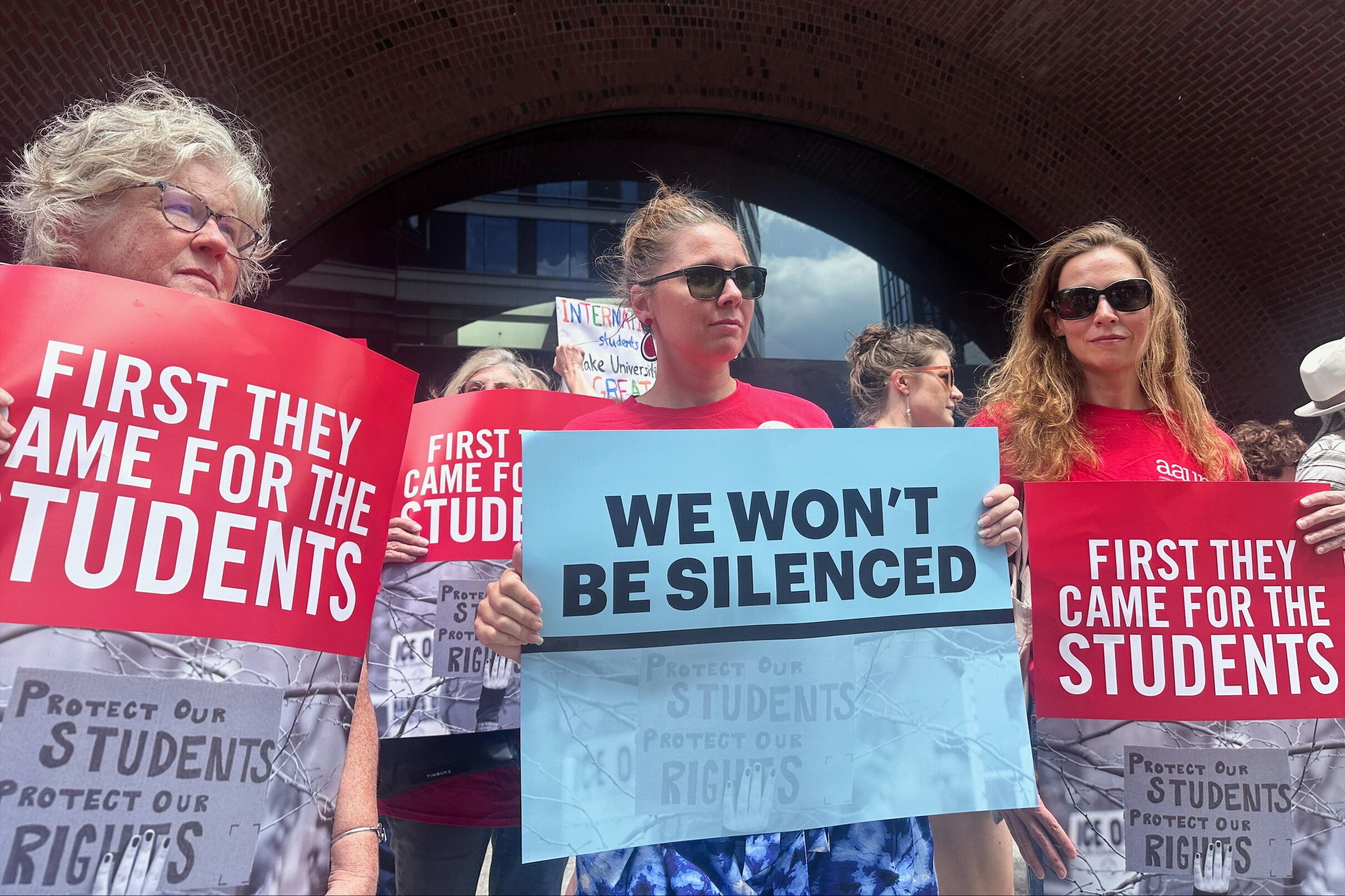Young told US lawyers, “The president is a master of speech and he certainly brilliantly uses his right to free speech.” However, he noted, it is doubtful if Trump “recognizes whether other people have any right to free speech.”
The plaintiffs are requesting that Young find that the policy is unconstitutional under the Administrative Procedure Act, which regulates the creation and issuance of regulations by federal agencies, and the First Amendment.
No ideological deportation policy
Plaintiffs contended throughout the trial that the campaign has targeted over 5,000 pro-Palestinian demonstrators and suppressed academics.
To chill speech is the aim. According to plaintiffs’ attorney Alexandra Conlan, the objective is to muzzle academics and students who want to voice pro-Palestinian opinions.
She continued by saying that the First Amendment was designed to stop this chilling effect that results from frightening and intimidating students and scholars.
However, a senior State Department official and federal attorneys appearing on behalf of the government maintained that there was no ideological deportation program, contrary to what the plaintiffs claim.
According to testimony by John Armstrong, the senior bureau official at the Bureau of Consular Affairs, visa revocations were justified by established immigration law. Armstrong was shown memoranda supporting the removal of prominent activists including Mahmoud Khalil and Rumeysa Ozturk, and he admitted he was involved in their visas being revoked.
Additionally, Armstrong denied claims that there was a program of targeting people based on their ideology and maintained that visa revocations were not based on free expression.
“Suggesting that there is a policy is foolish,” he remarked.
Were student protesters targeted?
Only 18 of the approximately 5,000 pro-Palestinian demonstrators the federal government looked into were taken into custody, according to U.S. attorney William Kanellis. Targeting such demonstrators, he claimed, is not only not a U.S. government policy, but it is also not a statistical oddity.
Peter Hatch of ICE’s Homeland Security Investigations Unit testified that investigators filed reports on roughly 200 of the 5,000 names screened for possible violations of U.S. law. Hatch said he could not remember a student protester being referred for a visa revocation until this year.
Khalil, a Columbia University graduate and Palestinian activist who was freed last month after spending 104 days in federal immigration prison, was one of the report subjects. Khalil has come to represent Trump’s crackdown on the demonstrations.
Another was Ozturk, a Tufts University student who was detained on a Boston suburb street and released in May after serving six weeks in jail. She said that after co-writing an opinion piece last year that criticized her school’s stance to the war in Gaza, she was unlawfully arrested.
Hatch claimed that the majority of leads were abandoned when investigators failed to connect them to protests and that the probes were motivated by established protocols rather than a new policy, at least since he assumed the position in 2019.
The reason for Ozturk’s arrest, according to Patrick Cunningham, an assistant special agent in charge of Homeland Security investigations in Boston, was that the Tuft University student’s visa had been canceled.
He did, however, disclose receiving a State Department memo regarding Ozturk and a copy of an opinion piece she co-wrote last year that criticized her university’s response to Israel during the Gaza War. He also acknowledged that, since Trump’s presidency, he has concentrated more on immigration matters than the money laundering and drug smuggling cases he previously handled.
Professors spoke of scaling back activism
Several professors with green cards testified throughout the trial about reducing their activity, public criticism, and overseas travel after Khalil and Ozturk were arrested.
German academic Nadje Al-Ali, who holds a green card, claimed she canceled a planned research trip and fellowship to Iraq and Lebanon because she was afraid that stamps from those two nations might raise suspicions when she returned. She also canceled plans to publish a feminist critique of Hamas for an article and refused to take part in anti-Trump demonstrations.
Al-Ali stated, “I thought it was too risky.”
According to U.S. government lawyer Kanellis, plaintiffs did not prove in their arguments that sentiments and concern over potential deportation are equivalent to immediate harm from a legal perspective.
Thanks to AP
Thanks to AP
Thanks to AP
Thanks to AP
Thanks to AP
Thanks to AP
Thanks to AP
Thanks to AP






